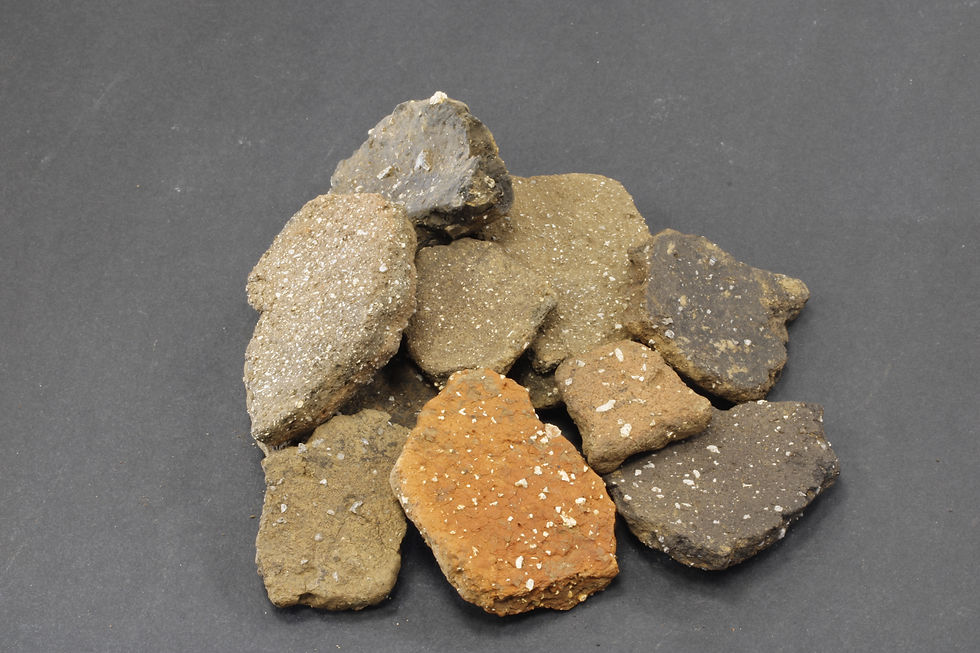Update on discoveries at Innovation Park Medway
- admin76749
- Aug 26, 2022
- 2 min read

You may have seen a summary of our fieldwork at #InnovationParkMedway in Newsletter 18. Since leaving the site back in January, we have been busy with post-excavation work. Stratigraphic analysis, coupled with dating of the pottery, has demonstrated that the main periods of activity at the site date to the early to middle Iron Age and the later Iron Age to early Roman periods.
The evidence suggests the area was used principally for agricultural activity throughout these periods. Field boundary ditches were dug, creating enclosures. These ditches encompassed fields which may have been used for cereal production or animal husbandry. A range of post-holes and pits were also recorded.
One of the more interesting features was a large pit containing an assemblage of pottery dating to the early to middle Iron Age period (c 700–600 BC). The pottery was made of a flint-tempered fabric and was quite crude and, although some sherds were quite large, they were extremely delicate. Based on differences in the fabric type, it seems that there may be several vessels represented within this pit.

Early to middle Iron Age pit with large sherds of pottery on the base
The large pit was situated within a cluster of smaller ones, which contained the remains of what had probably been complete vessels at the time of burial. We are not certain why they were placed in these pits: perhaps they relate to funerary or industrial activities. However, charcoal-rich deposits associated with one vessel have been found to include charred grains of wheat and barley.

Some of the pottery after cleaning
Agricultural land-use continued into the early Roman period and, possibly, the medieval. Cartographic evidence indicates that, by the mid-nineteenth century, the area was heavily wooded. Subsequent tree clearance took place to enable the development of pastureland for a nearby farm, at Horsted.
Post-medieval activity was recorded across the site as a series of trackways, and a ditch which follows the present parish boundary. The trackways would probably have been linked with the tree clearance and subsequent agricultural activities.
Post-excavation analysis continues, and we hope that this will shed light on these early farming practices.
Frances Morgan, Senior Archaeologist
For further information on the development: www.innovationparkmedway.com



Comments